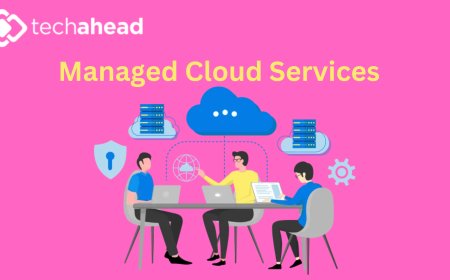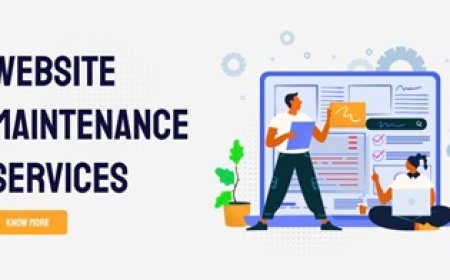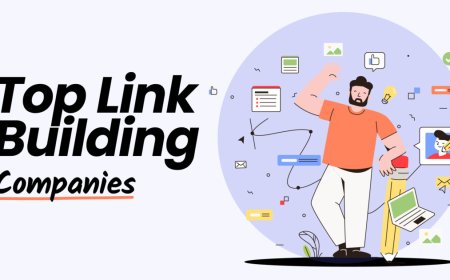Remote Workforce in Healthcare | Best IT Strategies Post-COVID
Learn how healthcare organisations can support remote teams with secure IT strategies and expert consulting in the post-COVID digital landscape.

The COVID-19 pandemic transformed how industries function, and healthcare was no exception. Remote consultations and digital administration became essential and proved highly effective. Even post-pandemic, many healthcare providers continue to embrace remote working models once seen as temporary. To make this shift sustainable, strong IT strategies are vital. The right technology ensures secure communication, smooth access to patient data, and consistent care delivery. This is where healthcare IT consulting and support from a trusted IT consultancy company play a key role.
In this blog, we explore the remote workforce in healthcare and the best IT strategies for long-term success.
The Rise of the Remote Healthcare Workforce
Before COVID-19, the idea of remote working in healthcare was limited, often restricted to administrative or support roles. However, the pandemic accelerated the adoption of remote technology across departments, from back-office operations to frontline virtual care.
Remote triage services, virtual consultations, and cloud-based access to electronic health records (EHRs) became standard practices. Healthcare professionals and support staff could continue to provide care and services without being physically present in clinics or hospitals.
This transformation demanded the deployment of modern IT systems and secure digital tools, guided by experthealthcare IT consulting, to ensure continuity of care. As we move forward, the hybrid model combining in-person and remote services is likely to become the norm in healthcare.
Challenges Faced by Healthcare Organisations
Despite the benefits, the shift to remote working posed several challenges for healthcare institutions.
- Data Security and Privacy Risks:
Remote access to sensitive patient information brought a heightened risk of data breaches. Healthcare data is a prime target for cyberattacks, making security a top priority. - Integration of New Technology:
Many healthcare organisations struggled to integrate new cloud platforms with their existing legacy systems. These incompatibilities caused disruptions and inefficiencies. - Lack of Staff Training:
Healthcare staff, including clinicians and administrators, needed to quickly adapt to new technologies. Without proper training, errors and inefficiencies increased. - Connectivity and Infrastructure Issues:
Not all staff had reliable internet connections or access to devices capable of supporting remote work. In some rural areas, internet speed posed a serious limitation. - Compliance Requirements:
Adhering to NHS Digital guidelines, GDPR, and other regulatory standards became more complex with decentralised work environments.
These challenges highlighted the importance of having a long-term, secure IT strategy designed specifically for healthcare settings.

Best IT Strategies for Supporting Remote Healthcare Teams
To overcome these hurdles, healthcare providers need to embrace strategic IT solutions that are secure, scalable, and user-friendly. Below are the most effective strategies to support a remote healthcare workforce in the post-COVID era.
1. Cloud Infrastructure and Virtual Desktops
Moving healthcare operations to the cloud allows staff to access critical systems, files, and applications from anywhere. Cloud platforms offer flexibility and scalability while maintaining security through encryption and controlled access.
Virtual Desktop Infrastructure (VDI) is another powerful tool that allows users to work on a virtual desktop thats hosted centrally. This means sensitive data never leaves the secure environment, reducing the risk of data loss or unauthorised access.
2. Strengthening Cybersecurity Measures
Robust cybersecurity must be a cornerstone of any remote IT strategy. Some key elements include:
- Multi-Factor Authentication (MFA):Adds a layer of security beyond passwords.
- Endpoint Protection:Ensures that all devices, including staff laptops and tablets, are protected.
- VPN Access:Secure virtual private networks encrypt communication and protect against interception.
- Regular Security Audits:Ongoing assessments help identify and fix vulnerabilities before theyre exploited.
These steps help ensure that remote working doesnt compromise patient safety or organisational integrity.
3. Centralised Communication and Collaboration Tools
Effective communication is essential in any workplace, and healthcare is no exception. The use of centralised communication tools like Microsoft Teams or secure messaging platforms enables healthcare staff to collaborate easily, whether they're in the office or working remotely.
Integrating these tools with electronic health systems ensures that conversations and updates are tied directly to patient records, improving workflow and care coordination.
4. Data Backup and Recovery
With remote teams relying heavily on digital tools, having a solid data backup and disaster recovery plan is vital. Regular, automatic backups ensure that critical patient data is not lost due to system failures or cyber incidents.
Cloud-based Disaster Recovery as a Service (DRaaS) offers healthcare providers a reliable solution to restore operations quickly in case of any disruption.
5. Staff Training and Ongoing Support
Technology is only as effective as the people using it. Training healthcare staff to use new systems securely and efficiently is crucial. Ongoing support ensures that any issues are resolved quickly, and staff remain confident using the tools at their disposal.
This also includes educating teams on data privacy, cyber hygiene, and how to spot phishing or other threats. Human error is a significant risk factor in data breaches, so education is key.
The Role of Healthcare IT Consulting Firms
As healthcare organisations navigate this new digital landscape, working with expert partners becomes essential. This is where healthcare IT consulting services provide immense value.
A specialisedIT consultancy companybrings technical expertise and a deep understanding of healthcare operations. From selecting the right technology stack to deploying it securely, consultants can:
- Design bespoke solutions that meet NHS and GDPR standards.
- Implement cloud migration strategies with minimal disruption.
- Provide cybersecurity frameworks tailored for remote healthcare workforces.
- Train staff and offer ongoing IT support.
Healthcare IT consultants ensure that digital transformation enhances care delivery without compromising on security, compliance, or productivity.

Future Outlook: Embracing Hybrid Healthcare Models
The healthcare sector is unlikely to return to pre-COVID norms. Hybrid models where clinical care is delivered both in-person and remotely are becoming more common. Patients appreciate the convenience of virtual consultations, and staff benefit from increased flexibility.
This means IT infrastructure must remain adaptive. Scalable, secure, and compliant systems will be essential for ensuring uninterrupted care, whether staff are at the clinic, working from home, or on the move.
Healthcare providers who invest in modern IT strategies now will be better positioned to face future challenges and improve patient outcomes.
Conclusion
The pandemic pushed the healthcare sector to adapt rapidly, with remote working proving effective for many roles. However, it also revealed key challenges in security, infrastructure, and staff readiness. With strong IT strategies such as cloud solutions, robust cybersecurity, reliable communication tools, and thorough staff training healthcare providers can build a secure and efficient remote working model.
Working with a trusted IT consultancy company that specialises in healthcare IT consulting is essential. These experts offer tailored solutions to address the sectors unique needs.
Renaissance Computer Services Limited proudly supports healthcare providers with dependable IT consultancy and customised strategies for long-term remote success.


























